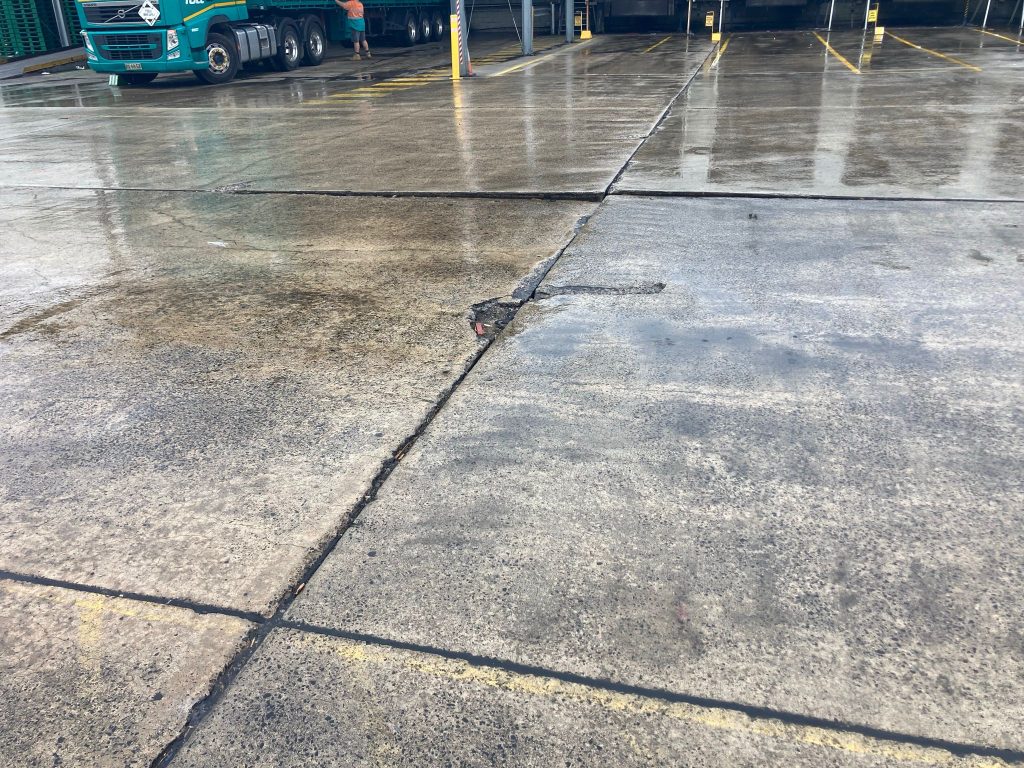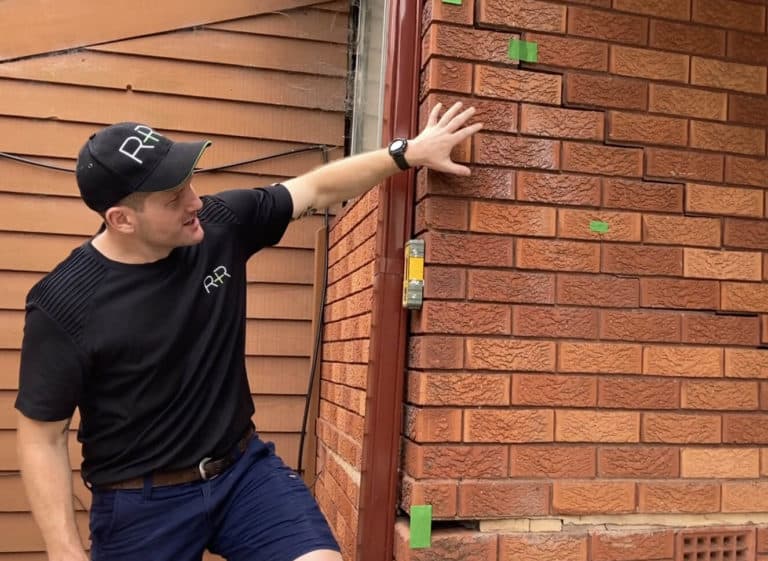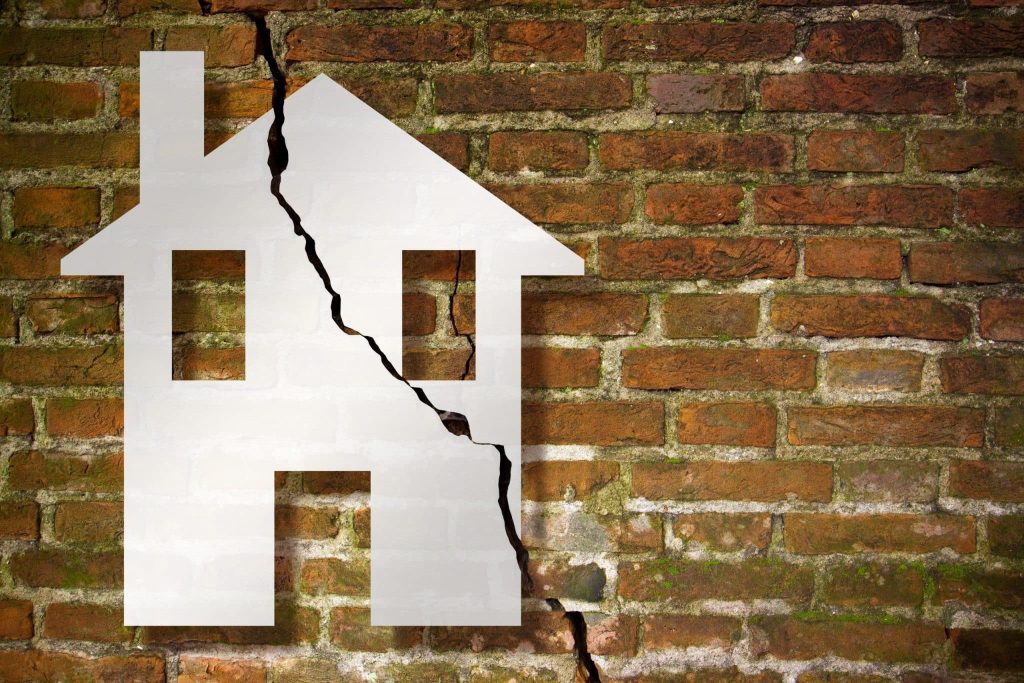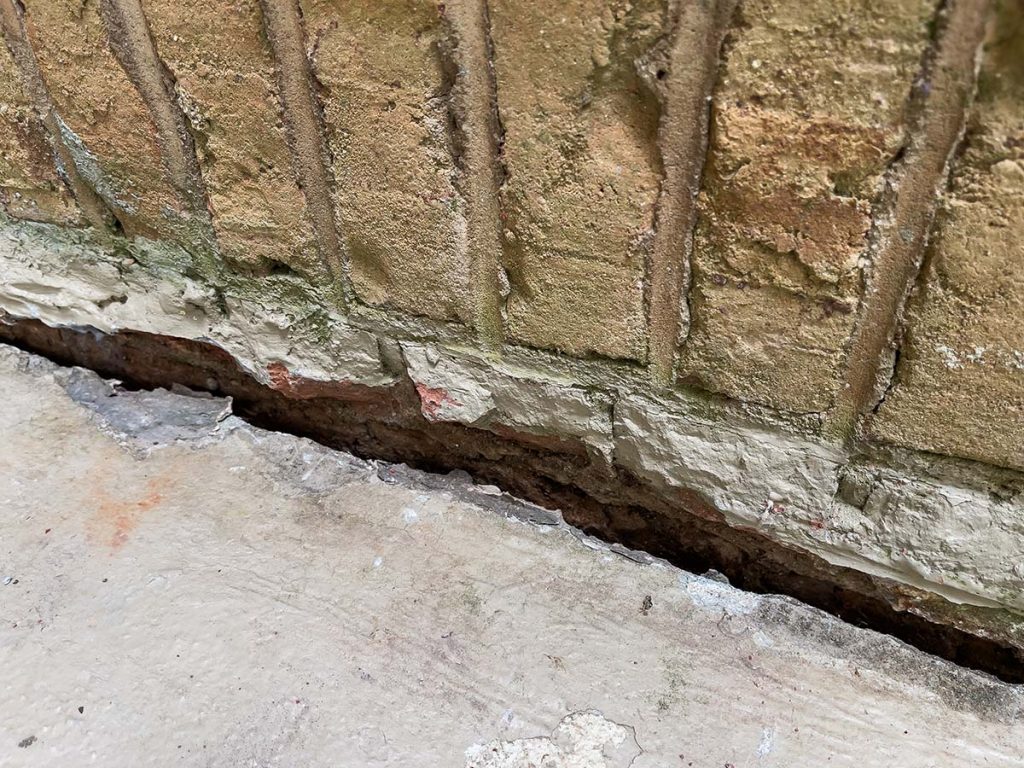Have you noticed an increase in damaged inventory? Are your forklifts unstable and leaning during operation? A sinking warehouse floor might be the problem.
A warehouse is the hub of a business, and if it’s not operating smoothly, it can have a serious impact on every aspect of the operation. If you are dealing with sinking concrete and cracking slabs, it can contribute to all kinds of structural issues.
R+R are floor levelling specialists, delivering high-quality work at affordable prices, with a 50-year workmanship guarantee and a 100-year material warranty.
A safe warehouse is an efficient warehouse, and level floors are key to ensuring safety, productivity, and efficiency.
Understanding Sinking Concrete
A sinking concrete slab is a sign of serious underlying issues and is typified by uneven or sagging surfaces, cracks, or depressions in the concrete flooring. You may also notice interior issues with doors and windows and cracks in your walls and flooring. Exterior issues include a sinking foundation, visible water pooling around the foundation, or cracks in the chimney, walls, and slabs.
There are several leading causes for sinking concrete slabs, including water damage, soil erosion, moisture changes, and poorly compacted soil.
Signs of Sinking Concrete in Warehouses
If you’re concerned about sinking slabs in your warehouse, there are several visible signs to look out for, and you can train your employees to be on the lookout for these.
Uneven flooring is one of the most obvious signs of an issue, and the only reason for uneven flooring is subsidence. The incline puts more wear on your forklift tyres and machinery, shortening the lifespan of expensive equipment.
Additionally, uneven flooring can present a danger to forklift operators and could contribute to accidents and asset and product damage. Uneven flooring can destabilise your racking system, which can lead to further inventory damage.
If there are cracks and gaps in and between your concrete slabs, this is a serious trip hazard and an indication that the floor is sinking and cracking as the soil beneath your concrete shifts and settles.
If there is poor drainage, pooling water could contribute to soil erosion and lead to uneven floors and subsidence.
Main Causes of Sinking Concrete in Warehouses
There are many contributing factors to concrete slab sinking in a warehouse. Every building can run the risk of soil compaction and settlement, but warehouses face unique challenges that contribute to the problem.
The first and most obvious factor is heavy load impact. With forklifts operating non-stop, heavy equipment, heavy products, and all kinds of work taking place, the concrete has a tough job. Additionally, vibrations from heavy machinery can also contribute to the problem.
Water intrusion is another serious issue. If you notice pooling water, you need to address your drainage issues as quickly as possible before it leads to sinking foundations.
Of course, soil compaction and settlement are the largest contributors. Whether it’s a problem with subgrade soil quality like reactive clays, tree roots, inadequate site preparation, or drainage issues that led to soil erosion, these can all play a role. A comprehensive investigation into soil quality should be carried out pre-construction to avoid these issues. However, at this stage, your focus should be on finding the right solution.
How to Fix Sinking Concrete
Now that you’ve identified a sinking floors problem, what are your potential solutions?
Polyurethane Foam Injection
If you want long-lasting results, polyurethane foam injections are the most efficient method to address uneven floors.
Mudjacking
Mudjacking is a cheap, efficient, and quick way to level a sinking floor. When you notice your floor starts to sink, mudjacking fills the space beneath your sunken concrete slabs with a slurry to level them out. It takes longer to cure than polyurethane and requires larger drill holes.
R+R deliver quick and efficient services for affordable prices, utilising state-of-the-art equipment and advanced re-levelling techniques to provide a high level of workmanship. You don’t need to worry about disruptions to your business. We can come in and get the job done quickly, allowing you to resume operations with minimal interruption. With a 50-year workmanship guarantee, a 100-year product warranty, and minimal downtime, polyurethane foam injections are the ideal solution for a busy warehouse operation.
Why Professional Concrete Releveling is Worth It
First and foremost, as the engine of your business, you need an efficient warehouse to keep things running smoothly. That means a level warehouse floor for optimal performance. Safety is paramount in every warehouse, and by having your concrete floor relevelled, you’re reducing trip hazards and preventing accidents.
With minimal interruptions and smoother material handling for forklifts, hand trucks, and other equipment, you’re improving your operational efficiency. With an even floor to operate on, you’re also putting less wear and tear on your equipment.
As a result of the level correction, you are protecting your inventory and assets. Uneven floors present a risk to racking, and damage to racking puts your inventory at risk. Likewise, sinking floors are a serious threat to the property’s structural integrity, so levelling them will bolster overall stability. With cost-efficient, quick solutions available, there’s no reason to delay.
Final Thoughts on Addressing Sinking Concrete
Whatever the cause of your sinking warehouse concrete, you can’t avoid dealing with it. The quicker you address the problem, the easier the solution will be. Additionally, it will ensure an operationally efficient and safe working environment for your employees and a secure building for your inventory and assets.
If you suspect some of these sinking concrete causes are at play in your warehouse and wonder whether concrete lifting and resin injection is the right choice, contact R+R to schedule a free assessment. R+R operates in Sydney, Melbourne, and Brisbane.
Frequently Asked Questions
How do I know whether an injection is better than a replacement?
Concrete sinks and leads to uneven flooring when soil shifts due to moisture, poor compaction, heavy work, or reactive clays. Should you pour new concrete when you see cracking floors and uneven surfaces? Let a professional assess your floor to determine the best course of action.
My concrete is new. Why is it cracking?
You should reach out to the contractor who poured your concrete because this is a sign of poor workmanship. Improper site preparation can cause concrete cracks that will lead to problems further down the line.
Can’t I pour new concrete on top of the old concrete?
Resurfacing might be adequate in some situations, but it’s a costly choice for a short-term fix. It’s not the right option for a warehouse setting, where efficiency and safety are paramount.




